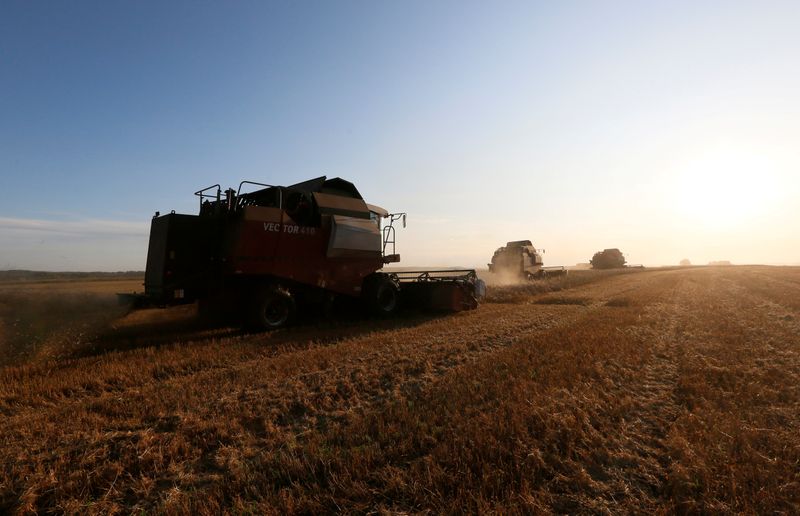MOSCOW (Reuters) – Wheat exports from Russia, Ukraine and Kazakhstan will hold steady in 2020/21, a Reuters poll showed, due to a larger crop in Russia and Kazakhstan, making competition easier with the European Union, where output is forecast lower.
The bulk of wheat from the bloc is exported via the Black Sea to customers in Africa and the Middle East, also important buyers for the European Union, where analysts expect the crop to decline due to dry spring weather.
Wheat exports from Russia, Ukraine and Kazakhstan are forecast to remain stable at 60.2 million tonnes in the season which is due to start on July 1, the poll of 17 analysts, officials and traders showed. Click here to see a table of the poll.
The combined 2020 wheat crop of the three countries will rise 0.8% to 115.2 million tonnes, the median estimate showed.
In Russia, which is expected to remain the world’s largest wheat exporter, a potential state export quota is the main risk to its competitiveness, a Russian banking analyst said.
A lack of clarity over Russian state regulation of the sector will be an advantage for Ukrainian traders, a trader in Kiev said. However, the quality of the crop unclear in Ukraine after a warm winter, spring rains and a hot April, he added.
Russia may harvest less wheat with high protein this year than in 2019 when its share was high, but it should not be a problem as the overall crop size will fall in the EU, said an agriculture consultant, who asked not to be named.
All three countries will have low stockpiles at the start of the season. However, expanding export infrastructure which will result in lower transhipment costs will help Russia and Ukraine, Sovecon consultancy said.
Kazakhstan, central Asia’s largest grain producer which usually starts harvesting in September, now has hot weather and will need rain for its already sown grains in the coming months.
(Reporting by Polina Devitt and Olga Popova in Moscow; Pavel Polityuk in Kiev; Olzhas Auyezov in Almaty; Michael Hogan in Hamburg; Gus Trompiz in Paris; editing by David Evans)



















